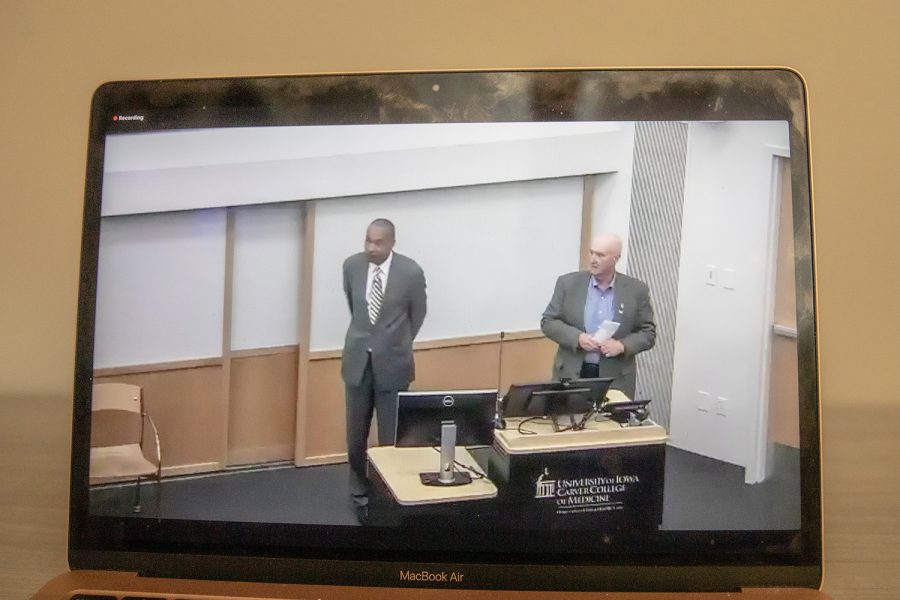Third finalist for Vice President of Medical Affairs and Carver College of Medicine Dean Selwyn Rogers discusses equity, healthcare plans for UI
The third Vice President of Medical Affairs and Carver College of Medicine Dean candidate finalist Selwyn Rogers focused on equity in healthcare and other topics during his open forum on Monday.
The third Vice President for Medical Affairs was announced on Zoom on Monday, Aug. 29, 2022.
August 29, 2022
The third finalist candidate for the University of Iowa vice president of medical affairs and Carver College of Medicine dean, Selwyn Rogers Jr., focused on equity in health care during his open forum in the Medical Education Research Facility on Monday.
“We’re all striving to achieve equity in the spaces in which we work, live, and play every day,” Rogers said.
He is the third candidate to visit the UI for the position occupied by current Vice President of medical affairs and dean of the Carver College of Medicine, Brooks Jackson.
Jackson will hold the position until a candidate is selected.
Rogers is the founding director of the trauma center at the University of Chicago Hospitals and the executive vice president of community health engagement, chief of the Section of Trauma and Acute Care Surgery, and a Dr. James E. Bowman, Jr. professor at the university.
Rogers also holds a research interest in finding ways to support underserved populations.
Keeping patient care at the forefront was an important reason for the creation of the trauma center in Chicago, Rogers said.
Rogers credited his collaborations with different medical systems as a factor of enhancing research across multiple disciplines.
While collaborating with the Center for Surgery and Public Health of the Harvard Medical School Department of Surgery and Harvard School of Public Health, Rogers’ team was able to reach the department’s goal of advancing the science of surgery through a research initiative.
The collaboration also addressed the surgical health care disparities and subsequently grew the department, he said.
“The fact that we were able to create a new avenue of investigation and brought together two highly specialized, but at times disparate, fields was an example of creating new science,” Rogers said.
Rogers also addressed the importance of training students, and the need for opportunities for students to look at social and institutional inequities and how they affect health.
He said quality student training is a main point of the evolution of health care in the U.S., especially pertaining to the UI.
“I think there’s incredible opportunity for us here at the University of Iowa Health Care to really be at the vanguard of doing this work, given its importance and given its impact,” Rogers said.
Rogers said investing in workforce development and the central role of diversity, equity, and inclusion is important for health care workers.
“We really need to think critically about how we really invest in programs, resources, and systems to really address the needs of our workforce,” Rogers said.














